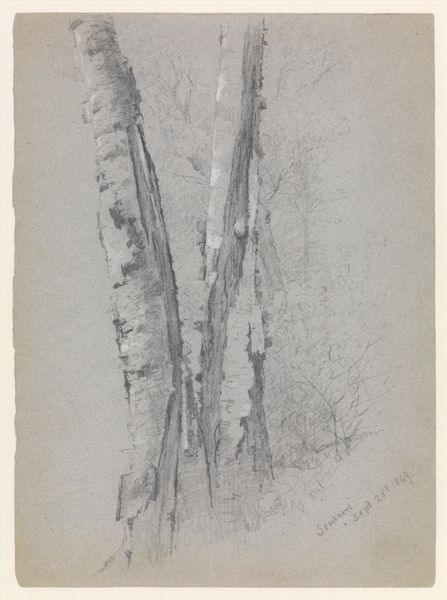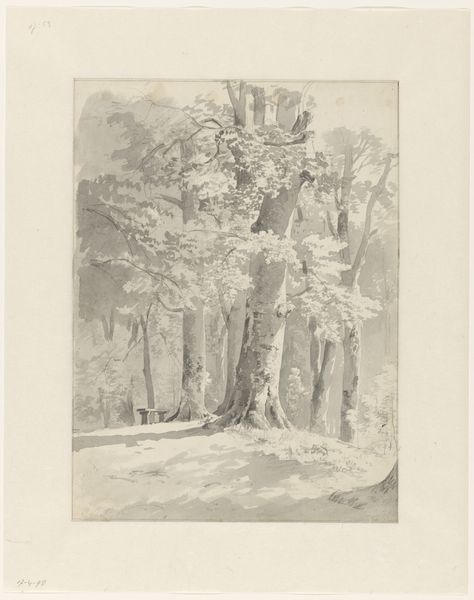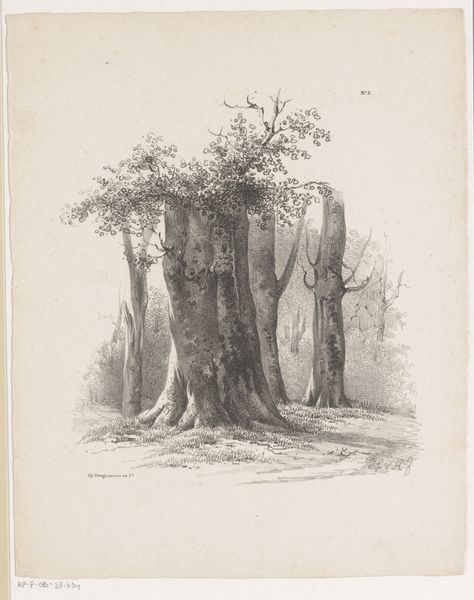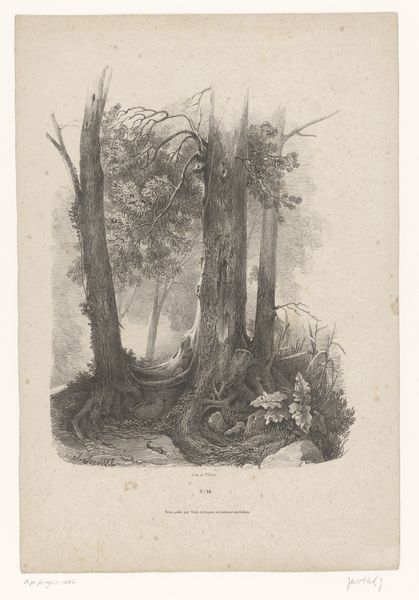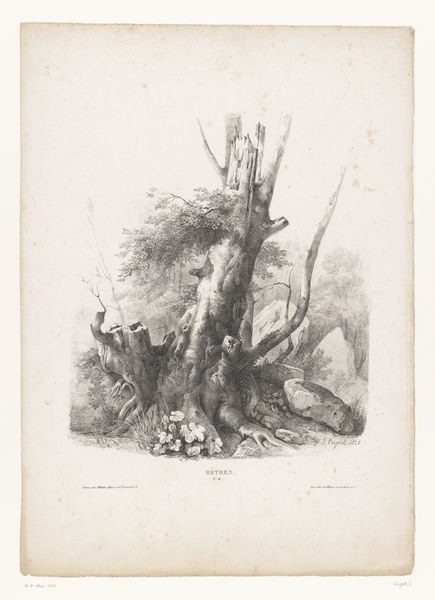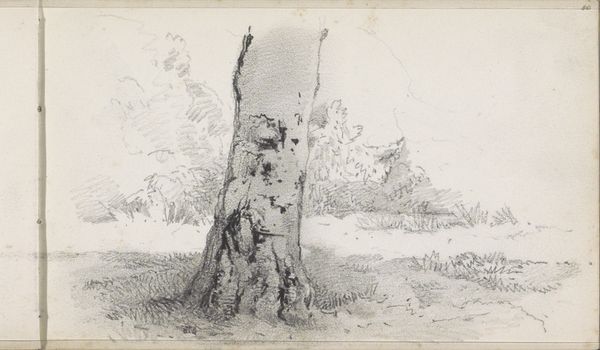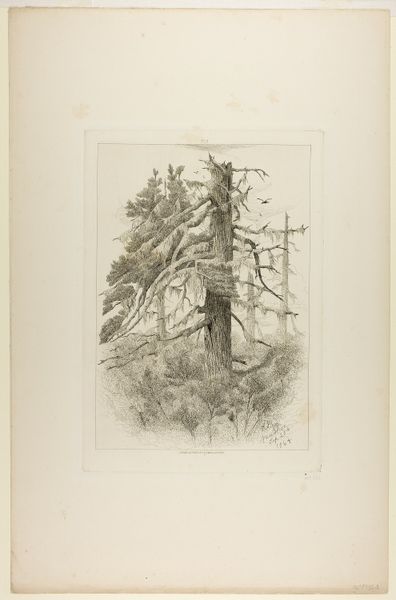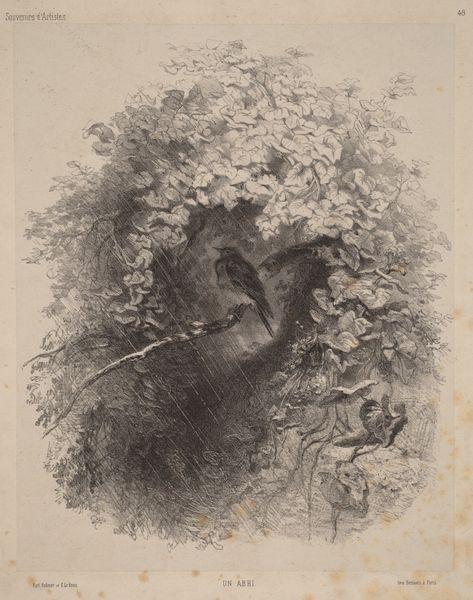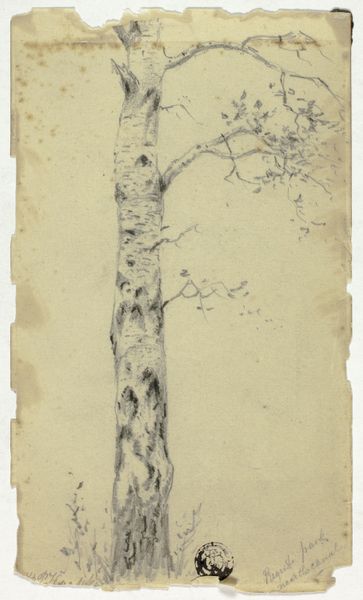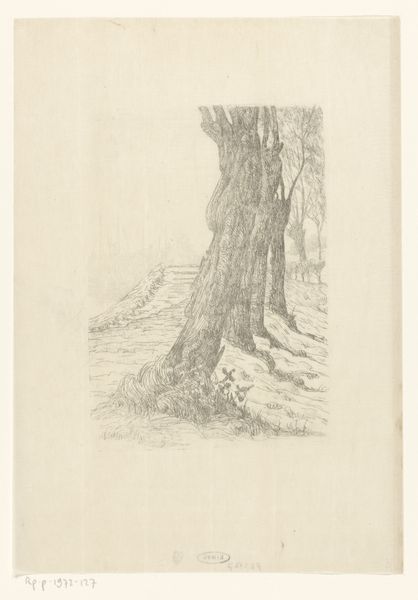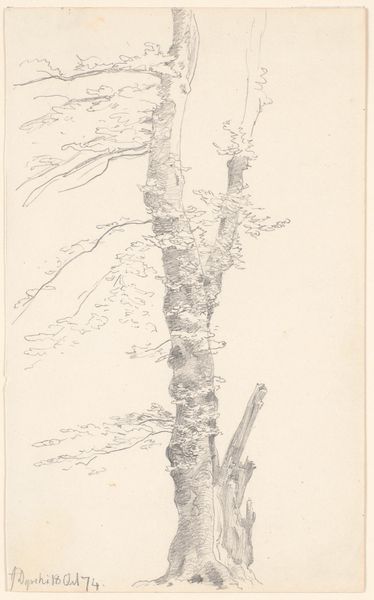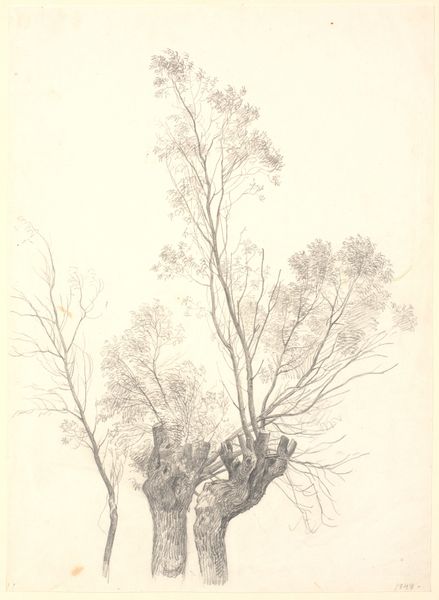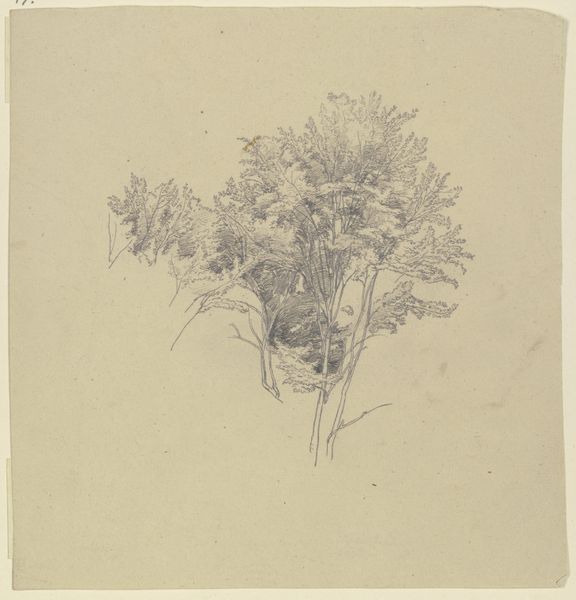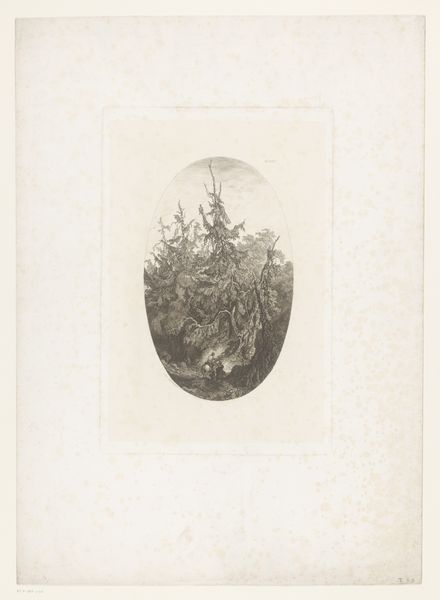
drawing, pencil, graphite
#
drawing
#
pencil sketch
#
landscape
#
forest
#
romanticism
#
pencil
#
graphite
#
northern-renaissance
#
watercolor
#
realism
Dimensions: height 490 mm, width 345 mm
Copyright: Rijks Museum: Open Domain
Barend Cornelis Koekkoek made this drawing of four tree trunks in a forest with graphite and paper. He used traditional art materials to create this work. Graphite, in its raw form, is a soft, crystalline form of carbon. Here, it is ground and mixed with a binder to form the core of a pencil. Koekkoek skillfully uses this humble material to create a detailed study of texture, weight, and form. Look closely, and you’ll see how the varying pressure and angles of the pencil strokes mimic the rough bark and gnarled branches of the trees. The artist engages with the skilled traditions of drawing and illustration. However, it’s also linked to a wider social context. During the 19th century, paper production and graphite mining became increasingly industrialized. This drawing, therefore, becomes an intersection of nature, artistic skill, and industrial processes. The amount of work involved in the production process is not only Koekkoek’s, but also that of the laborers who extracted and processed these materials. Understanding the materials, making, and context of this drawing expands our understanding of its meaning, and challenges traditional distinctions between fine art and craft.
Comments
No comments
Be the first to comment and join the conversation on the ultimate creative platform.
